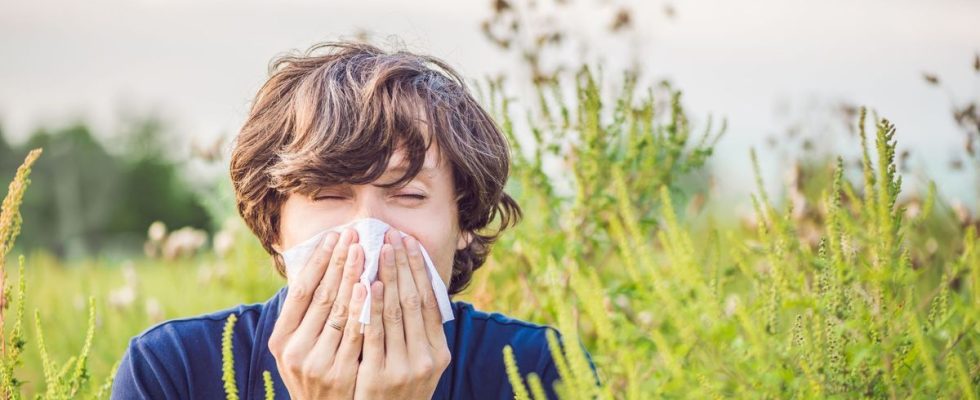Published on
Updated
Reading 2 mins.
Spring has settled in France and brings with it its share of allergenic pollens. Indeed, no less than 69 departments are classified red this week by the National Aerobiological Surveillance Network (RSNA).
Published on April 11, the bulletin of the National Aerobiological Surveillance Network (RSNA) ranks 69 departments, mainly located in the northeast quarter of the country, in red, on its pollen map. For the others, the level is yellow, which means that the pollen alert is at the “medium” level.
The forecast rain should help allergy sufferers
In its bulletin, the RNSA provides details on the type of pollen found in the air. “Hornbeam pollens and ash pollens are very abundant in the air with a risk of allergy which will evolve between the low level and the high level according to the departments“Luckily for allergy sufferers, the weather should work in their favor.”The rain will intermittently offer allergy sufferers moments of respite over the next few days, as it will flatten the pollen to the ground.“says the RNSA.
Different pollens depending on the region
In the South of the country, the pollens found are those of cypresses, plane trees, or even oaks. The pollens of poplars, grasses or willows “are present from west to east with a low to medium risk of allergy“concludes the newsletter.
A few prevention tips
As a reminder, in order to avoid excessive exposure to pollen:
- Regularly check the regularly updated RNSA pollen map;
- Ventilate your home at least 10 minutes a day, before and after sunset;
- Avoid drying your laundry outside;
- Do not drive with the windows open. Pollen could get into the vehicle;
- Avoid practicing outdoor sports activities;
- Wash your hair daily, in the evening, to avoid keeping pollen in contact with you while you sleep.
The risk of allergy remains high in many departments of France for birch pollen which is very abundant in the air, but the rain is returning and will offer intermittent respite to allergy sufferers in the coming days. pic.twitter.com/y5FITasVof
— National Aerobiological Surveillance Network (@rnsa_pollen) April 11, 2023
